It looks like you're using an Ad Blocker.
Please white-list or disable AboveTopSecret.com in your ad-blocking tool.
Thank you.
Some features of ATS will be disabled while you continue to use an ad-blocker.
share:
Elon Musk's AI brain chip business Neuralink, where he had twins with a senior executive, was the focus of this narrative. One of Elon Musk's odd
and futuristic businesses is called Neuralink. It is creating technology for neural interfaces, sometimes known as implanting microchips in people's
brains.
Neurological problems might be studied and treated with the use of technology. Elon Musk is well-known for founding well-known businesses like Tesla and SpaceX, but the tycoon also has a number of strange businesses. He claims he established one of them in an effort to create a "symbiosis" between artificial intelligence and the human brain.
Musk founded the brain interface technology business Neuralink. It is creating a gadget that would be inserted into a person's brain, where it could record and maybe stimulate brain activity. The technology is like a "FitBit in your cranium," according to Musk.
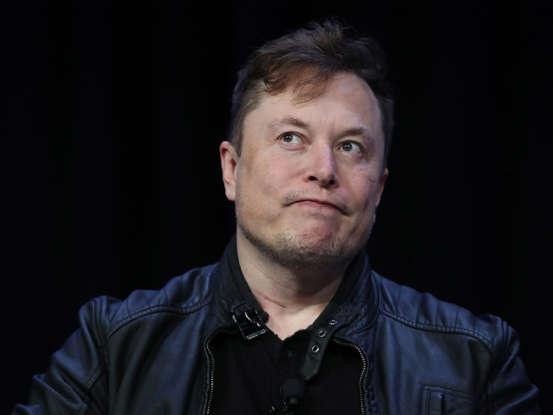
Two pieces of equipment are being created by Neuralink. The first involves implanting a chip with electrodes into someone's brain within their skull.
The coin-sized chip that Neuralink is creating would be implanted in a person's skull. A network of tiny wires that are each about 20 times thinner than a human hair spread out from the chip into the patient's brain.
The cables include 1,024 electrodes that may be used to monitor brain activity and, in theory, activate the brain electrically. The chip wirelessly transmits this data to computers so that researchers may study.
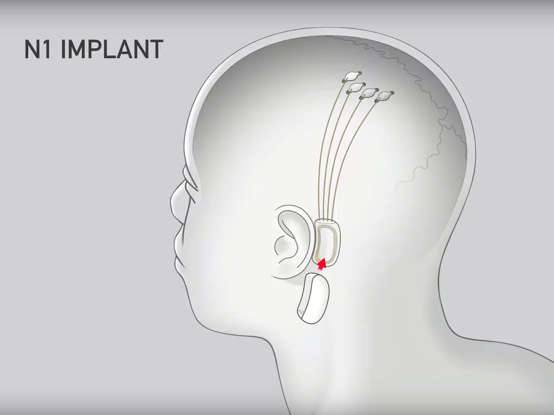
The second is a robot that could put the chip in autonomously.
Similar to a sewing machine, the robot would operate by forcing flexible wires coming from a Neuralink chip into a person's brain with a rigid needle.
In January 2021, Neuralink unveiled a video displaying the robot.
According to Musk, the device might make implanting the electrodes for Neuralink as simple as LASIK eye surgery. Although this is a big statement, neuroscientists told Insider in 2019 that the machine has several extremely intriguing characteristics.
The brain moves during surgery along with a patient's breathing and heartbeat, thus Professor Andrew Hires mentioned a function that would automatically modify the needle to account for this movement.
The robot is eight feet tall as it stands right now, and while Neuralink is working on the technology that powers it, Woke Studios created its design.
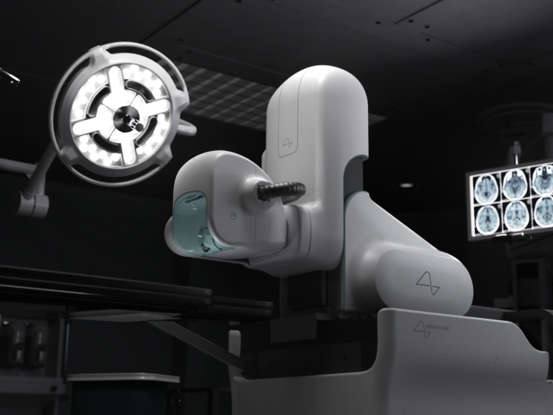
One of Neuralink's chips was displayed in 2020 inside of a pig named Gertrude.
The proof-of-concept demonstration revealed how the chip could precisely predict the location of Gertrude's limbs as she walked on a treadmill and capture brain activity as the pig sniffed about for food. Musk said that the pig had lived for two months with the chip within her head.
1,024 channels may not seem amazing in terms of technology today, but the electronics used to transmit them wirelessly are cutting-edge, and the robotic insertion is wonderful, according to Newcastle University's Professor Andrew Jackson, an expert in neural interfaces. He declared, "This is good engineering, but poor neurology."
In terms of number of channels or other aspects, he said, "Even if the technology doesn't do anything more than we are able to do at the moment, just from a welfare aspect for the animals, I think if you can do experiments with something that doesn't involve wires coming through the skin, that's going to improve the welfare of animals."
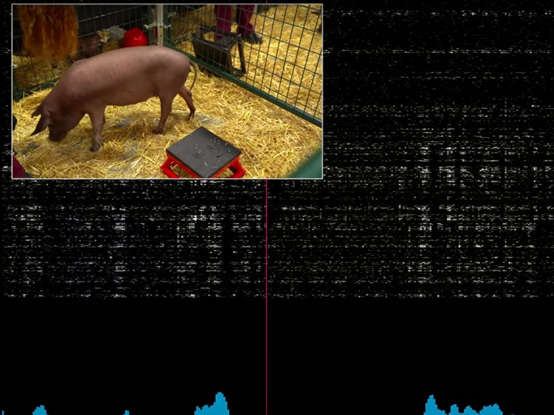 To be continued
To be continued
Neurological problems might be studied and treated with the use of technology. Elon Musk is well-known for founding well-known businesses like Tesla and SpaceX, but the tycoon also has a number of strange businesses. He claims he established one of them in an effort to create a "symbiosis" between artificial intelligence and the human brain.
Musk founded the brain interface technology business Neuralink. It is creating a gadget that would be inserted into a person's brain, where it could record and maybe stimulate brain activity. The technology is like a "FitBit in your cranium," according to Musk.

Two pieces of equipment are being created by Neuralink. The first involves implanting a chip with electrodes into someone's brain within their skull.
The coin-sized chip that Neuralink is creating would be implanted in a person's skull. A network of tiny wires that are each about 20 times thinner than a human hair spread out from the chip into the patient's brain.
The cables include 1,024 electrodes that may be used to monitor brain activity and, in theory, activate the brain electrically. The chip wirelessly transmits this data to computers so that researchers may study.

The second is a robot that could put the chip in autonomously.
Similar to a sewing machine, the robot would operate by forcing flexible wires coming from a Neuralink chip into a person's brain with a rigid needle.
In January 2021, Neuralink unveiled a video displaying the robot.
According to Musk, the device might make implanting the electrodes for Neuralink as simple as LASIK eye surgery. Although this is a big statement, neuroscientists told Insider in 2019 that the machine has several extremely intriguing characteristics.
The brain moves during surgery along with a patient's breathing and heartbeat, thus Professor Andrew Hires mentioned a function that would automatically modify the needle to account for this movement.
The robot is eight feet tall as it stands right now, and while Neuralink is working on the technology that powers it, Woke Studios created its design.

One of Neuralink's chips was displayed in 2020 inside of a pig named Gertrude.
The proof-of-concept demonstration revealed how the chip could precisely predict the location of Gertrude's limbs as she walked on a treadmill and capture brain activity as the pig sniffed about for food. Musk said that the pig had lived for two months with the chip within her head.
1,024 channels may not seem amazing in terms of technology today, but the electronics used to transmit them wirelessly are cutting-edge, and the robotic insertion is wonderful, according to Newcastle University's Professor Andrew Jackson, an expert in neural interfaces. He declared, "This is good engineering, but poor neurology."
In terms of number of channels or other aspects, he said, "Even if the technology doesn't do anything more than we are able to do at the moment, just from a welfare aspect for the animals, I think if you can do experiments with something that doesn't involve wires coming through the skin, that's going to improve the welfare of animals."

Neuroscientists don't think much of Elon Musk's claim that Neuralink can allow monkeys to operate computers using their brain signals.
Neuralink successfully implanted its chip into a monkey, Elon Musk enthusiastically stated in a 2019 presentation. He continued, "Just FYI, a monkey has proven able to control a computer with its brain," which seemed to catch Neuralink president Max Hodak off guard. Hodak stated, "I didn't know we were running that outcome today, but there it goes.
Two months before the video demonstration, in February 2021, Musk reaffirmed the assertion.
Speaking to Insider in 2019, neuroscientists remarked that while the assertion would catch readers' attention, they did not believe it to be particularly surprising or even noteworthy.
"The monkey is not doing any internet searching. Most likely, the monkey is adjusting a cursor to move a little ball in an effort to align it with a target "According to University of California assistant professor of neuroscience Andrew Hires.
It has been done in the past to implant neural-brain interfaces into animals so they can manipulate images on screens. This type of technology was initially developed by academics in 2002, according to Professor Andrew Jackson of the University of Newcastle, who spoke to Insider in April 2021; however, its roots may actually date back to the 1960s.
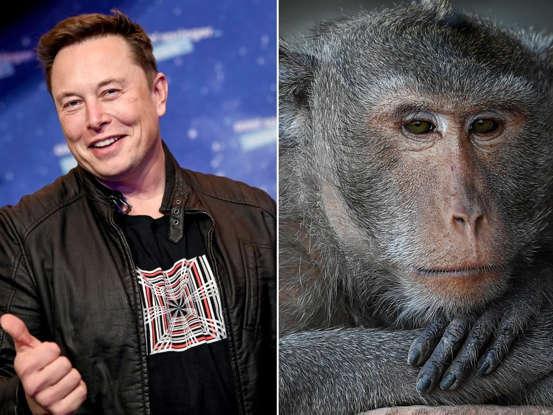
In February 2022, an animal rights organization complained to Neuralink about how it handled the monkeys it utilized for research.
The Physicians Committee for Responsible Medicine, an organization that advocates for animal rights, announced in February 2022 that it had filed a complaint with the US Department of Agriculture after obtaining more than 700 pages of records pertaining to monkeys used in Neuralink research at the University of California at Davis between 2017 and 2020.
Through a public records request, the group was able to collect the data, which also included necropsy results and veterinary records. They claimed to show that 23 monkeys had gone through "severe pain due to subpar animal care and the highly intrusive experimental head implants during the tests."
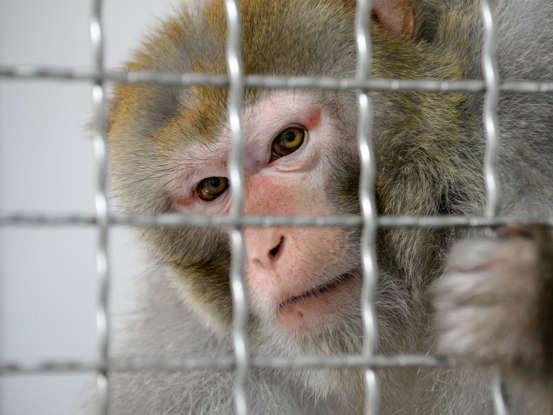
Neuroscientists are impressed with how seamlessly Neuralink has been able to integrate current technologies, despite the fact that none of the technology it has so far demonstrated has been particularly ground-breaking.
"All of the technology he demonstrated has already been created in some capacity, [...] They essentially did nothing more than wrap it up into a cute little form that transmits data wirelessly "Following the company's 2020 demonstration, Dr. Jason Shepherd, an associate professor of neuroscience at the University of Utah, spoke with Insider.
Musk has actually copied and pasted a lot of work from other labs that have been working on this, the speaker claims. "If you just saw this presentation, you would assume that it's coming out of nowhere, that Musk is creating this magic," he adds.

Two years later than expected, Neuralink intends to begin implanting its devices in people in 2022, according to Elon Musk.
On December 6, 2021, Musk stated that Neuralink aimed to begin human testing the following year, subject to Food and Drug Administration permission. Musk was speaking at The Wall Street Journal CEO Council Summit.
On Twitter, he reiterated the assertion.
Next year, when devices are in humans, progress will quicken because it's difficult to have complex talks with monkeys, Musk tweeted.
Musk has previously established a deadline for introducing Neuralink's chips into people.
Musk stated that Neuralink might start testing on human participants in less than a year during an appearance on "The Joe Rogan Experience" podcast in May 2020. In an interview, he stated the same thing.
By the end of 2020, Musk stated in 2019 that the business hoped to implant a chip into a human patient.
As any chip would have to stay in a human patient's brain for a lifetime, experts expressed doubt about this timeline at the time because safety testing a neural interface device involves implanting it in an animal test subject (typically a primate) and leaving it there for a prolonged period of time to test its longevity.
"You can't make that process go faster. To find out how long the electrodes last, you must simply wait. It's difficult to envision how you'll be able to test this without having to wait a very long time if the goal is for these to last decades.
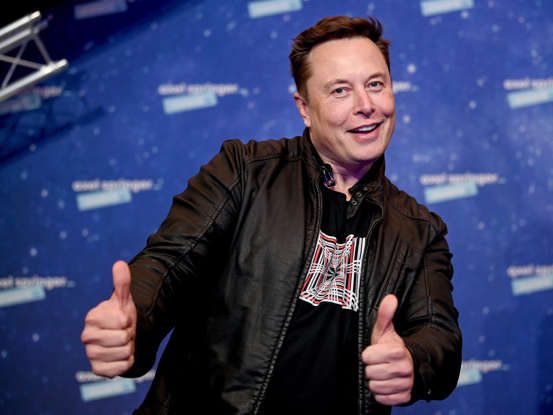
A chip in the brain may soon aid in the treatment of neurological conditions like Parkinson's.
Neuralink's improved neural interface technology may make it easier to diagnose and cure serious neurological diseases like Parkinson's and Alzheimer's.
Another use, according to Professor Andrew Hires, could be giving patients the ability to mentally operate robotic prosthetics.
In a 2019 interview, Hires said, "The first application you can imagine is better mental control for a robotic arm for someone who's paralyzed." He added that electrodes in a patient's brain may be able to replicate the sensation of touch, enabling the patient to exert finer motor control over a prosthetic limb.
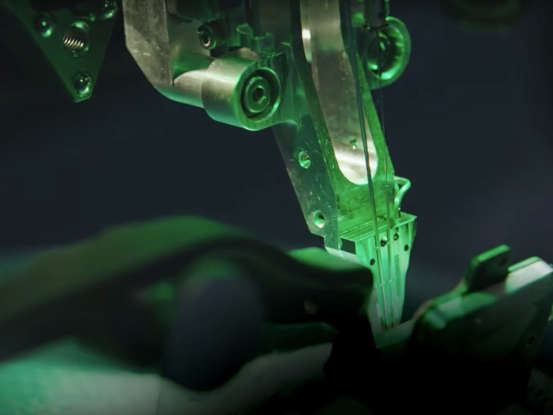
Elon Musk also claims that Neuralink's technology might ultimately be used to combine artificial intelligence with human consciousness, while academics are dubious of this claim.
Musk frequently associates Neuralink with his concerns about artificial intelligence, despite the fact that the business has been praised for its near-term uses. Musk has stated that he believes Neuralink's technology would enable humanity to "symbiose with artificial intelligence."
In 2019, Musk stated that Neuralink was "designed to solve the existential risk associated with digital superintelligence" in an interview with "Artificial Intelligence" podcast presenter Lex Fridman.
Musk continued, "We won't be able to outsmart a digital supercomputer, so if you can't beat 'em, join 'em."
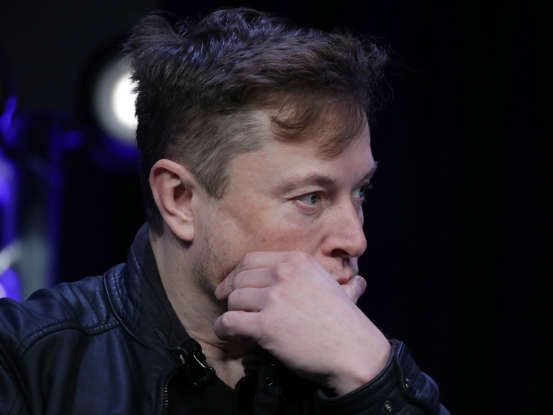
At least 15 of the 23 primates who received Neuralink brain implants from Elon Musk between 2017 and 2020 at the University of California Davis apparently perished.
The news comes from the Physicians Committee for Responsible Medicine, an organization that defends animal rights, which viewed over 700 pages of paperwork, veterinary records, and necropsy reports after making a public records request at the university, according to Business Insider and the New York Post.
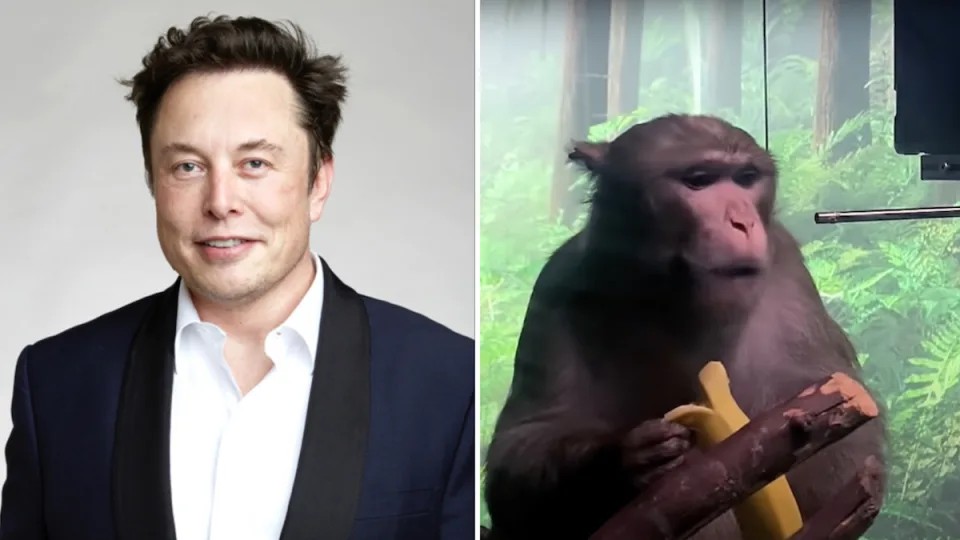
Elon Musk, the CEO of NEURALINK, is under fire for reportedly using deceased monkeys in studies prior to human clinical trials.
After the Physicians Committee for Responsible Medicine filed a complaint against Neuralink for abusing monkeys during its brain chip clinical trials, the internet has turned on Elon Musk.
Since the complaint was made public on Thursday, hundreds have used social media to criticize Musk for conducting research that resulted in the deaths of 15 monkeys due to trauma or euthanasia.
"Every Elon Musk article I've read has mentioned how one of his businesses was a complete failure. Tesla crashes and explosions, SpaceX explosions, that idiotic tunnel, and now NeuraLink monkey deaths. He tweets, but he is not an innovator "On Twitter, one user commented.
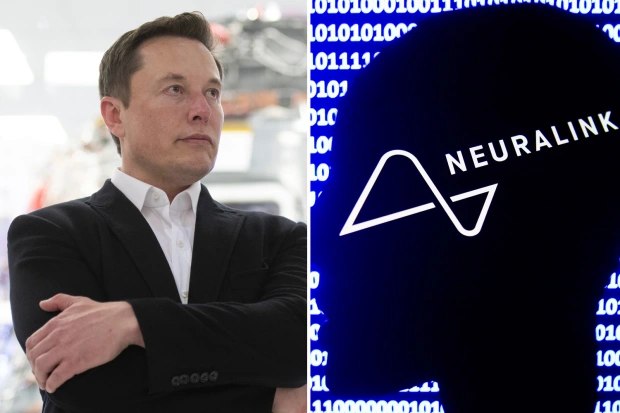
To be continued
Neuralink successfully implanted its chip into a monkey, Elon Musk enthusiastically stated in a 2019 presentation. He continued, "Just FYI, a monkey has proven able to control a computer with its brain," which seemed to catch Neuralink president Max Hodak off guard. Hodak stated, "I didn't know we were running that outcome today, but there it goes.
Two months before the video demonstration, in February 2021, Musk reaffirmed the assertion.
Speaking to Insider in 2019, neuroscientists remarked that while the assertion would catch readers' attention, they did not believe it to be particularly surprising or even noteworthy.
"The monkey is not doing any internet searching. Most likely, the monkey is adjusting a cursor to move a little ball in an effort to align it with a target "According to University of California assistant professor of neuroscience Andrew Hires.
It has been done in the past to implant neural-brain interfaces into animals so they can manipulate images on screens. This type of technology was initially developed by academics in 2002, according to Professor Andrew Jackson of the University of Newcastle, who spoke to Insider in April 2021; however, its roots may actually date back to the 1960s.

In February 2022, an animal rights organization complained to Neuralink about how it handled the monkeys it utilized for research.
The Physicians Committee for Responsible Medicine, an organization that advocates for animal rights, announced in February 2022 that it had filed a complaint with the US Department of Agriculture after obtaining more than 700 pages of records pertaining to monkeys used in Neuralink research at the University of California at Davis between 2017 and 2020.
Through a public records request, the group was able to collect the data, which also included necropsy results and veterinary records. They claimed to show that 23 monkeys had gone through "severe pain due to subpar animal care and the highly intrusive experimental head implants during the tests."

Neuroscientists are impressed with how seamlessly Neuralink has been able to integrate current technologies, despite the fact that none of the technology it has so far demonstrated has been particularly ground-breaking.
"All of the technology he demonstrated has already been created in some capacity, [...] They essentially did nothing more than wrap it up into a cute little form that transmits data wirelessly "Following the company's 2020 demonstration, Dr. Jason Shepherd, an associate professor of neuroscience at the University of Utah, spoke with Insider.
Musk has actually copied and pasted a lot of work from other labs that have been working on this, the speaker claims. "If you just saw this presentation, you would assume that it's coming out of nowhere, that Musk is creating this magic," he adds.

Two years later than expected, Neuralink intends to begin implanting its devices in people in 2022, according to Elon Musk.
On December 6, 2021, Musk stated that Neuralink aimed to begin human testing the following year, subject to Food and Drug Administration permission. Musk was speaking at The Wall Street Journal CEO Council Summit.
On Twitter, he reiterated the assertion.
Next year, when devices are in humans, progress will quicken because it's difficult to have complex talks with monkeys, Musk tweeted.
Musk has previously established a deadline for introducing Neuralink's chips into people.
Musk stated that Neuralink might start testing on human participants in less than a year during an appearance on "The Joe Rogan Experience" podcast in May 2020. In an interview, he stated the same thing.
By the end of 2020, Musk stated in 2019 that the business hoped to implant a chip into a human patient.
As any chip would have to stay in a human patient's brain for a lifetime, experts expressed doubt about this timeline at the time because safety testing a neural interface device involves implanting it in an animal test subject (typically a primate) and leaving it there for a prolonged period of time to test its longevity.
"You can't make that process go faster. To find out how long the electrodes last, you must simply wait. It's difficult to envision how you'll be able to test this without having to wait a very long time if the goal is for these to last decades.

A chip in the brain may soon aid in the treatment of neurological conditions like Parkinson's.
Neuralink's improved neural interface technology may make it easier to diagnose and cure serious neurological diseases like Parkinson's and Alzheimer's.
Another use, according to Professor Andrew Hires, could be giving patients the ability to mentally operate robotic prosthetics.
In a 2019 interview, Hires said, "The first application you can imagine is better mental control for a robotic arm for someone who's paralyzed." He added that electrodes in a patient's brain may be able to replicate the sensation of touch, enabling the patient to exert finer motor control over a prosthetic limb.

Elon Musk also claims that Neuralink's technology might ultimately be used to combine artificial intelligence with human consciousness, while academics are dubious of this claim.
Musk frequently associates Neuralink with his concerns about artificial intelligence, despite the fact that the business has been praised for its near-term uses. Musk has stated that he believes Neuralink's technology would enable humanity to "symbiose with artificial intelligence."
In 2019, Musk stated that Neuralink was "designed to solve the existential risk associated with digital superintelligence" in an interview with "Artificial Intelligence" podcast presenter Lex Fridman.
Musk continued, "We won't be able to outsmart a digital supercomputer, so if you can't beat 'em, join 'em."

At least 15 of the 23 primates who received Neuralink brain implants from Elon Musk between 2017 and 2020 at the University of California Davis apparently perished.
The news comes from the Physicians Committee for Responsible Medicine, an organization that defends animal rights, which viewed over 700 pages of paperwork, veterinary records, and necropsy reports after making a public records request at the university, according to Business Insider and the New York Post.

Elon Musk, the CEO of NEURALINK, is under fire for reportedly using deceased monkeys in studies prior to human clinical trials.
After the Physicians Committee for Responsible Medicine filed a complaint against Neuralink for abusing monkeys during its brain chip clinical trials, the internet has turned on Elon Musk.
Since the complaint was made public on Thursday, hundreds have used social media to criticize Musk for conducting research that resulted in the deaths of 15 monkeys due to trauma or euthanasia.
"Every Elon Musk article I've read has mentioned how one of his businesses was a complete failure. Tesla crashes and explosions, SpaceX explosions, that idiotic tunnel, and now NeuraLink monkey deaths. He tweets, but he is not an innovator "On Twitter, one user commented.

To be continued
The studies were carried out at UC Davis, and Neuralink paid $1.4 million to utilize the university's facilities, according to PCRM, which represents
over 17,000 doctors.
Neuralink has stated that it carried out testing at the institution and has previously mentioned that numerous animals were put to death while participating in tests.
According to a post on the Neuralink blog, "two animals were put to death as part of this experiment at planned end dates to acquire vital histology data, and six animals were put to death at the medical advice of the veterinary personnel at UC Davis."
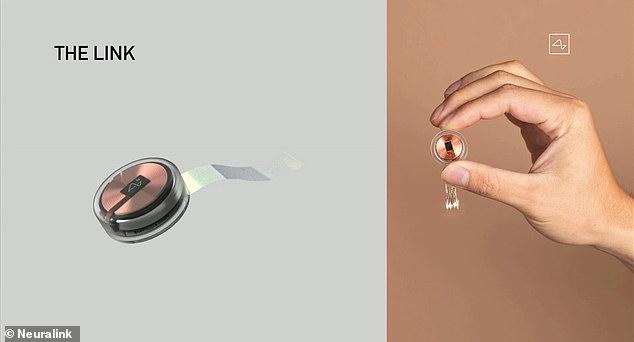
After some lab monkeys supposedly died and others allegedly chewed off their fingers, Elon Musk says his brain chip implant will be tested on humans within six months.

Elon Musk's Neuralink brain implant firm denies charges of animal abuse, so a collection of graphic images of monkeys allegedly hurt or killed in testing with the technology may not be made public. However, a court struggle to force a California university to do so is ongoing.
The Physicians Committee for Responsible Medicine (PCRM) advocacy group claims to have found that the University of California, Davis has 371 pictures of the monkeys used in the school's veterinary lab experiments.
According to PCRM, which has also filed a lawsuit against Neuralink, the esteemed California institution is in possession of hundreds of pictures showing, among other things, "necropsies of animals slaughtered" in the trials.
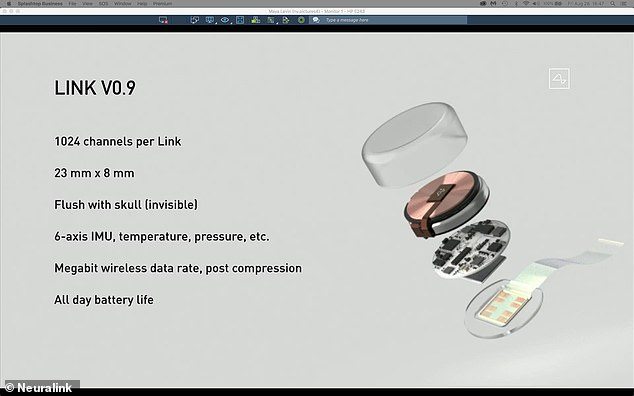
The end
Neuralink has stated that it carried out testing at the institution and has previously mentioned that numerous animals were put to death while participating in tests.
According to a post on the Neuralink blog, "two animals were put to death as part of this experiment at planned end dates to acquire vital histology data, and six animals were put to death at the medical advice of the veterinary personnel at UC Davis."

After some lab monkeys supposedly died and others allegedly chewed off their fingers, Elon Musk says his brain chip implant will be tested on humans within six months.

Elon Musk's Neuralink brain implant firm denies charges of animal abuse, so a collection of graphic images of monkeys allegedly hurt or killed in testing with the technology may not be made public. However, a court struggle to force a California university to do so is ongoing.
The Physicians Committee for Responsible Medicine (PCRM) advocacy group claims to have found that the University of California, Davis has 371 pictures of the monkeys used in the school's veterinary lab experiments.
According to PCRM, which has also filed a lawsuit against Neuralink, the esteemed California institution is in possession of hundreds of pictures showing, among other things, "necropsies of animals slaughtered" in the trials.

The end
The ultimate dream for hackers. Even have it in a movie.
Obviously not satisfied with the results out of MK Ultra ... let's get a more direct path.
Slavery by any other name is still slavery.
P
Obviously not satisfied with the results out of MK Ultra ... let's get a more direct path.
Slavery by any other name is still slavery.
P
And he causeth all, both small and great, rich and poor, free and bond, to receive a mark in their right hand, or in their foreheads
Revelations 13:16
I’m still waiting for depopulation to kick in…. Traffic is getting terrible in my area…
Can’t wait 😜
Can’t wait 😜
I’m still waiting for depopulation to kick in…. Traffic is getting terrible in my area…
Can’t wait 😜
Can’t wait 😜
originally posted by: pheonix358
Obviously not satisfied with the results out of MK Ultra ...
Definitely reminiscent of Delgado's work.
There's also the WEF angle as Musk is/was part of that organisation and Klaus Scwhab is chomping at the bit to get everyone 'brainchipped' by 2026.
Apparently there's also DARPA involvement and serious concerns about Neuralink brainchips 'eliminating the I/O constrain'.
a reply to: karl 12
All I know is that I will never willingly get something like this implanted in my head. At the same time, I think they have at least 2 or 3 decades before they sort out wanting to chew off the fingers, and the tech they are currently using will cause all kinds of brain damage in the short term, and those with the implant would not make it to the long term. I am guessing there is a good chance I am safe from being put in a situation where I would have to worry about it. Although I also guess a van could always pull and snatch me while I'm walking my dogs and take me down to UC-D for making this thread. I better pack two.
All I know is that I will never willingly get something like this implanted in my head. At the same time, I think they have at least 2 or 3 decades before they sort out wanting to chew off the fingers, and the tech they are currently using will cause all kinds of brain damage in the short term, and those with the implant would not make it to the long term. I am guessing there is a good chance I am safe from being put in a situation where I would have to worry about it. Although I also guess a van could always pull and snatch me while I'm walking my dogs and take me down to UC-D for making this thread. I better pack two.
edit on 4 12 2022 by tamusan because: (no reason given)
Fairly balanced OP
I sort of start yawning at WEF/depopulation being linked to this; I mean, FFS the globalists don’t need expensive tech to grind us into the gutter, we’re already f*****g there lol!
Everyone ask yourselves; in 500 years of progression you expect to have an everyday neural interface right? Right, well the future is here and I’m planning on enjoying it
Let’s side on hope
I sort of start yawning at WEF/depopulation being linked to this; I mean, FFS the globalists don’t need expensive tech to grind us into the gutter, we’re already f*****g there lol!
Everyone ask yourselves; in 500 years of progression you expect to have an everyday neural interface right? Right, well the future is here and I’m planning on enjoying it
Let’s side on hope
a reply to: AlwaysoneandTogether
Yeah, in 500 years, this stuff will probably work great, and people will even live a normal lifespan. I give a person a year and a half at most with the current tech. They are nowhere near keeping anything living alive for the long-term. I don't see why we have to connect wires to the brain anyway. This can be worked out with magnetism and EMF.
Yeah, in 500 years, this stuff will probably work great, and people will even live a normal lifespan. I give a person a year and a half at most with the current tech. They are nowhere near keeping anything living alive for the long-term. I don't see why we have to connect wires to the brain anyway. This can be worked out with magnetism and EMF.
edit on 4 12 2022 by tamusan because: (no reason given)
Musk is/was part of that organisation and Klaus Scwhab is chomping at the bit to get everyone 'brainchipped' by 2026.
Just curious..what happens to the people who already have one and have had for..ever? What if the one already there is more advanced than this can on a string that this guys got going?
originally posted by: tamusan
a reply to: AlwaysoneandTogether
Yeah, in 500 years, this stuff will probably work great, and people will even live a normal lifespan. I give a person a year and a half at most with the current tech. They are nowhere near keeping anything living alive for the long-term. I don't see why we have to connect wires to the brain anyway. This can be worked out with magnetism and EMF.
Interesting points for sure! I’m wondering how susceptible they’d be to an emp or other forms of interference, the tech certainly won’t be perfect for years but these are important steps of progress and I’m hopeful for our collective future
a reply to: tamusan
Curious about the vagueness of when this tech was first developed, you would think there would be patents all over it. My bet is it was probably developed around the same time as MKUltra by the same shady people.
This type of technology was initially developed by academics in 2002, according to Professor Andrew Jackson of the University of Newcastle, who spoke to Insider in April 2021; however, its roots may actually date back to the 1960s.
Curious about the vagueness of when this tech was first developed, you would think there would be patents all over it. My bet is it was probably developed around the same time as MKUltra by the same shady people.
Ok. I intentionally haven't researched this Schwab person..well because everyone here seems to hate his guts. Whats his connection to Pee Wee..I mean
Mr.Musk? These chips he's 'introducing..my God man, antiquated clunky crap..it would be like having.
.no words..
Remember Facebook? Old tech that the government didn't want, so they shoved it down the peoples throat..This flinstones chip is no different..Why didn't the government want Facebook? Duh..Cuz they already have better crap.
Id like to see the proposal created by Musk and Co. that the 'Boys' just laughed at..
.no words..
Remember Facebook? Old tech that the government didn't want, so they shoved it down the peoples throat..This flinstones chip is no different..Why didn't the government want Facebook? Duh..Cuz they already have better crap.
Id like to see the proposal created by Musk and Co. that the 'Boys' just laughed at..
originally posted by: tamusan
All I know is that I will never willingly get something like this implanted in my head.
Well, we are definitely on the same page there my friend.
Some further info here on the lawsuit citing brainchipped test monkeys suffering 'chronic infections, seizures and paralysis'.
It should go without saying (hence why I'm saying it anyway) that software and neurology be kept strictly parallel, aligned but not converging, unless
the objective is to sustain base functionality in the subject who suffers a high probability of critical failure without assistance. As recreational
augmentation goes, this is a dubious field at best for the moral and biological implications.
new topics
-
The Looking Glass - Episode 3: The Path of Least Resistance
Short Stories: 1 minutes ago -
Credit card debt
Relationships: 2 hours ago -
President-elect Trump asks the Supreme Court to Let Tik-Tok Continue Operating in the U.S..
Mainstream News: 2 hours ago -
Treasury Secretary Janet Yellen Says The USA Will Be in Debt Default in Jan 2025 - Unless...
Mainstream News: 6 hours ago -
Trash To Treasure: Dumpster Diving With Mike The Scavenger
General Chit Chat: 6 hours ago -
Danish Prime Minister said to keep 3 days worth of canned goods on hand
World War Three: 7 hours ago -
The hunter has become the hunted
Politicians & People: 10 hours ago -
Trump's idea to make Canada the 51st US state: 'Potential is massive'
Mainstream News: 11 hours ago
top topics
-
The hunter has become the hunted
Politicians & People: 10 hours ago, 19 flags -
Well this is Awkward .....
Mainstream News: 15 hours ago, 17 flags -
Trump's idea to make Canada the 51st US state: 'Potential is massive'
Mainstream News: 11 hours ago, 13 flags -
Kurakhove officially falls. Russia takes control of major logistics hub city in the southeast.
World War Three: 16 hours ago, 9 flags -
Treasury Secretary Janet Yellen Says The USA Will Be in Debt Default in Jan 2025 - Unless...
Mainstream News: 6 hours ago, 5 flags -
Trash To Treasure: Dumpster Diving With Mike The Scavenger
General Chit Chat: 6 hours ago, 3 flags -
Danish Prime Minister said to keep 3 days worth of canned goods on hand
World War Three: 7 hours ago, 3 flags -
President-elect Trump asks the Supreme Court to Let Tik-Tok Continue Operating in the U.S..
Mainstream News: 2 hours ago, 1 flags -
Credit card debt
Relationships: 2 hours ago, 1 flags -
The Looking Glass - Episode 3: The Path of Least Resistance
Short Stories: 1 minutes ago, 0 flags
active topics
-
The Looking Glass - Episode 3: The Path of Least Resistance
Short Stories • 1 • : ChaoticOrder -
Trump's idea to make Canada the 51st US state: 'Potential is massive'
Mainstream News • 42 • : JAGStorm -
No Wonder We Are In Such INSANE Debt- Americans MUST Put a Stop to This
US Political Madness • 68 • : BernnieJGato -
President-elect Trump asks the Supreme Court to Let Tik-Tok Continue Operating in the U.S..
Mainstream News • 15 • : TheMisguidedAngel -
Credit card debt
Relationships • 1 • : VariedcodeSole -
Elon Musk futurist?
Dreams & Predictions • 21 • : cherokeetroy -
Treasury Secretary Janet Yellen Says The USA Will Be in Debt Default in Jan 2025 - Unless...
Mainstream News • 21 • : WeMustCare -
The hunter has become the hunted
Politicians & People • 13 • : 777Vader -
Encouraging News Media to be MAGA-PAF Should Be a Top Priority for Trump Admin 2025-2029.
Education and Media • 92 • : WeMustCare -
Trump to tackle homelessness
Social Issues and Civil Unrest • 168 • : WeMustCare
